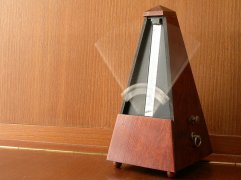What are Piano Exams?
By Jo Ann Vick
Piano exams in the United States are a structured and standardized way for piano students to demonstrate their musical abilities and progress. These exams typically follow a curriculum set by recognized music examination boards or organizations, and successful completion often leads to certification or accreditation.
The purpose of piano exams is to assess a student's proficiency in various musical elements, including technique, repertoire, sight-reading, and aural skills. In this detailed exploration, we will delve into the history and development of piano exams in the United States, the major examination boards, the exam structure, preparation process, and the significance of these exams in the musical education landscape.
Historical Overview:
Introduction of Piano Exams in the United States:Piano exams in the United States have their roots in the European tradition of music education. As Western classical music gained popularity in the 19th century, the idea of standardized music examinations emerged to evaluate and validate a musician's skills. In the United States, this trend gained momentum in the early 20th century as the nation's interest in music education grew.
Evolution of Piano Exams:
The development of piano exams in the United States is closely tied to the expansion of formal music education. In the mid-20th century, various music examination boards, both American and international, began establishing their presence in the country. These boards aimed to provide a structured framework for assessing students' musical abilities and promoting a standardized approach to music education.
Major Examination Boards:
The Associated Board of the Royal Schools of Music (ABRSM):One of the most prominent international examination boards, the ABRSM, has been a major player in piano exams in the United States. Established in the United Kingdom, the ABRSM expanded its reach globally, including the United States. The board's comprehensive syllabus covers various levels of piano proficiency, from beginner to advanced, and includes components such as scales, sight-reading, aural tests, and repertoire.
The Royal Conservatory of Music (RCM):
The RCM, a Canadian institution, has also played a significant role in piano exams in the United States. With a curriculum that emphasizes both classical and contemporary music, the RCM provides a diverse framework for assessing piano students. Its grading system and certification process have become widely recognized, and many American piano teachers and students choose to participate in RCM exams.
The National Guild of Piano Teachers:
Founded in 1929, the National Guild of Piano Teachers is an American organization that has contributed significantly to the piano exam landscape in the United States. The Guild's Piano Auditions program offers a comprehensive evaluation process, including memorized and non-memorized pieces, technical requirements, and musicianship phases. The program has been embraced by many piano teachers and students across the nation.
Other Examination Boards:
In addition to the ABRSM, RCM, and the National Guild, other examination boards, both national and international, have made their mark in the United States. These include the American College of Musicians, the Music Teachers National Association (MTNA), and the International Piano Performance Examination Committee (IPPEC), among others.
Exam Structure and Components:
Levels and Grading:Piano exams are typically organized into graded levels, ranging from preliminary or preparatory levels for beginners to advanced levels for more experienced pianists. Each level corresponds to a set of specific skills and requirements that evaluate the student's technical, musical, and interpretative abilities.
Technical Requirements:
Technical proficiency is a fundamental aspect of piano exams. Students are required to demonstrate their command of scales, arpeggios, and other technical exercises appropriate for their level. This component assesses a student's finger strength, agility, and overall control of the instrument.
Repertoire:
The repertoire section of piano exams involves the performance of selected pieces from various musical periods. Students must exhibit a mastery of different styles, tempos, and expressive elements. The choice of repertoire is often guided by the examination board's syllabus, which may include specific pieces or allow for a broader selection within defined parameters.
Sight-Reading:
Sight-reading assesses a student's ability to read and perform music they have not seen before. This component evaluates skills such as note recognition, rhythm comprehension, and overall sight-reading fluency. Students may be asked to perform a short piece or excerpt on sight during the exam.
Aural Skills:
Aural tests evaluate a student's listening and musical perception abilities. This component may include tasks such as identifying intervals, rhythms, chords, or even recognizing specific elements within a piece of music. Aural skills contribute to a well-rounded musician capable of understanding and interpreting music beyond the written score.
Exam Preparation Process:
Selection of Examination Board:The first step in preparing for a piano exam is selecting the examination board. Teachers and students often choose a board based on their preferences, the curriculum offered, and the overall goals of the student. Each board has its unique approach and requirements, influencing the choice of repertoire and the overall exam experience.
Lesson Planning and Curriculum:
Piano teachers play a crucial role in guiding students through the exam preparation process. They design lesson plans that align with the chosen examination board's syllabus, focusing on technical exercises, repertoire, sight-reading, and aural skills. The curriculum is tailored to the student's level and abilities, gradually progressing towards the specific requirements of the chosen exam.
Practice and Rehearsal:
Regular and focused practice is essential for success in piano exams. Students are encouraged to practice technical exercises, memorize repertoire, and develop a deep understanding of the musical elements within each piece. Rehearsals with the piano teacher often involve detailed feedback and guidance to address technical challenges, musical interpretation, and overall performance skills.
Mock Exams and Performance Opportunities:
To simulate the exam experience, piano teachers may organize mock exams or performance opportunities for their students. These sessions help students become familiar with the pressure and expectations of a formal examination. Feedback from mock exams can be valuable in refining the student's preparation in the weeks leading up to the actual exam.
Significance and Impact:
Educational Benefits:Participating in piano exams offers numerous educational benefits for students. The structured curriculum and assessment criteria provide a clear path for musical development, ensuring that students gain a well-rounded understanding of music theory, technique, and performance. The goal-oriented nature of exams motivates students to set and achieve musical milestones.
Recognition and Certification:
Successfully completing a piano exam results in the awarding of certificates or diplomas by the examination board. These certifications serve as tangible recognition of the student's achievements and proficiency in piano playing. They can be valuable for college applications, music scholarships, and future career opportunities in music.
Motivation and Goal Setting:
Piano exams provide a framework for setting and achieving musical goals. The progression through different levels allows students to measure their improvement over time. The motivation to attain higher levels of proficiency and achieve better exam results often inspires students to maintain a consistent and disciplined practice routine.
Performance Skills and Confidence:
The performance aspect of piano exams contributes significantly to the development of stage presence and confidence in students. The experience of playing in front of an examiner enhances a student's ability to handle performance anxiety and pressure. These skills are transferable to other areas of life and can be particularly beneficial for students pursuing careers in music.
Challenges and Criticisms:
Standardization and Musical Expression:One criticism of piano exams is the potential tension between standardized assessments and the encouragement of individual musical expression. Some argue that rigid exam requirements may limit the creative and interpretative aspects of music, emphasizing technical correctness over personal artistry.
Stress and Pressure:
The exam environment, with its formal setting and the presence of an examiner, can induce stress and performance anxiety in some students. Critics argue that the pressure associated with exams may hinder musical expression and contribute to a narrow focus on meeting specific criteria rather than exploring the broader artistic aspects of music.
Narrow Focus on Western Classical Repertoire:
Some critics express concern that piano exams, particularly those administered by traditional examination boards, may place too much emphasis on Western classical repertoire. This focus could potentially neglect the rich diversity of global musical traditions and limit the exposure of students to a broader range of musical styles.
Limited Assessment of Creativity:
While piano exams assess technical skills and interpretative abilities, they may not fully capture a student's creativity and compositional talents. Critics argue that the emphasis on performing existing repertoire may overshadow a student's potential for original musical expression and composition.
Future Trends and Innovations:
Integration of Technology:The incorporation of technology into piano exams is a growing trend. Online exams, digital score submissions, and interactive platforms are becoming more common, offering convenience and flexibility for both students and examiners. Technology also allows for the integration of multimedia elements, enhancing the assessment of aural skills and overall musical understanding.
Diversification of Repertoire:
In response to calls for greater inclusivity, examination boards are diversifying their repertoire offerings. This includes incorporating music from a wider range of cultural and stylistic traditions, as well as including more contemporary and non-classical genres. This trend aims to create a more inclusive and representative approach to music education.
Emphasis on Creativity and Composition:
Recognizing the importance of fostering creativity, some examination boards are incorporating composition and improvisation components into their exams. This shift aims to balance the traditional focus on interpretation with opportunities for students to express their unique musical voices through original compositions and improvisational skills.
Adaptive Assessment Methods:
To address concerns about stress and pressure, some examination boards are exploring adaptive assessment methods. This may involve incorporating more flexible exam formats, allowing students to choose repertoire that aligns with their interests, and providing alternative pathways for assessment that accommodate different learning styles.
Conclusion:
Piano exams in the United States have evolved significantly over the years, reflecting changes in pedagogy, technology, and cultural perspectives. These exams serve as a valuable tool for assessing and recognizing the musical abilities of piano students, providing a structured framework for their development. While facing criticisms, the benefits of piano exams, including educational growth, recognition, and motivation, remain significant.As we look to the future, ongoing innovations and adaptations in exam formats, repertoire selection, and assessment methods suggest a dynamic and responsive approach to the changing landscape of music education. The challenge lies in finding a balance between maintaining standards and embracing inclusivity, creativity, and the diverse musical expressions of a global society.
Ultimately, piano exams play a crucial role in shaping the musical journey of countless students, contributing to the rich tapestry of the nation's cultural and artistic heritage.
Jo Ann Vick is a private piano instructor with 20 years of training and performing experience
and has a home based studio in Frisco, Texas. Her mission is to develop in others, a love
for playing the piano. Her website is located at www.teachmethepiano.com





